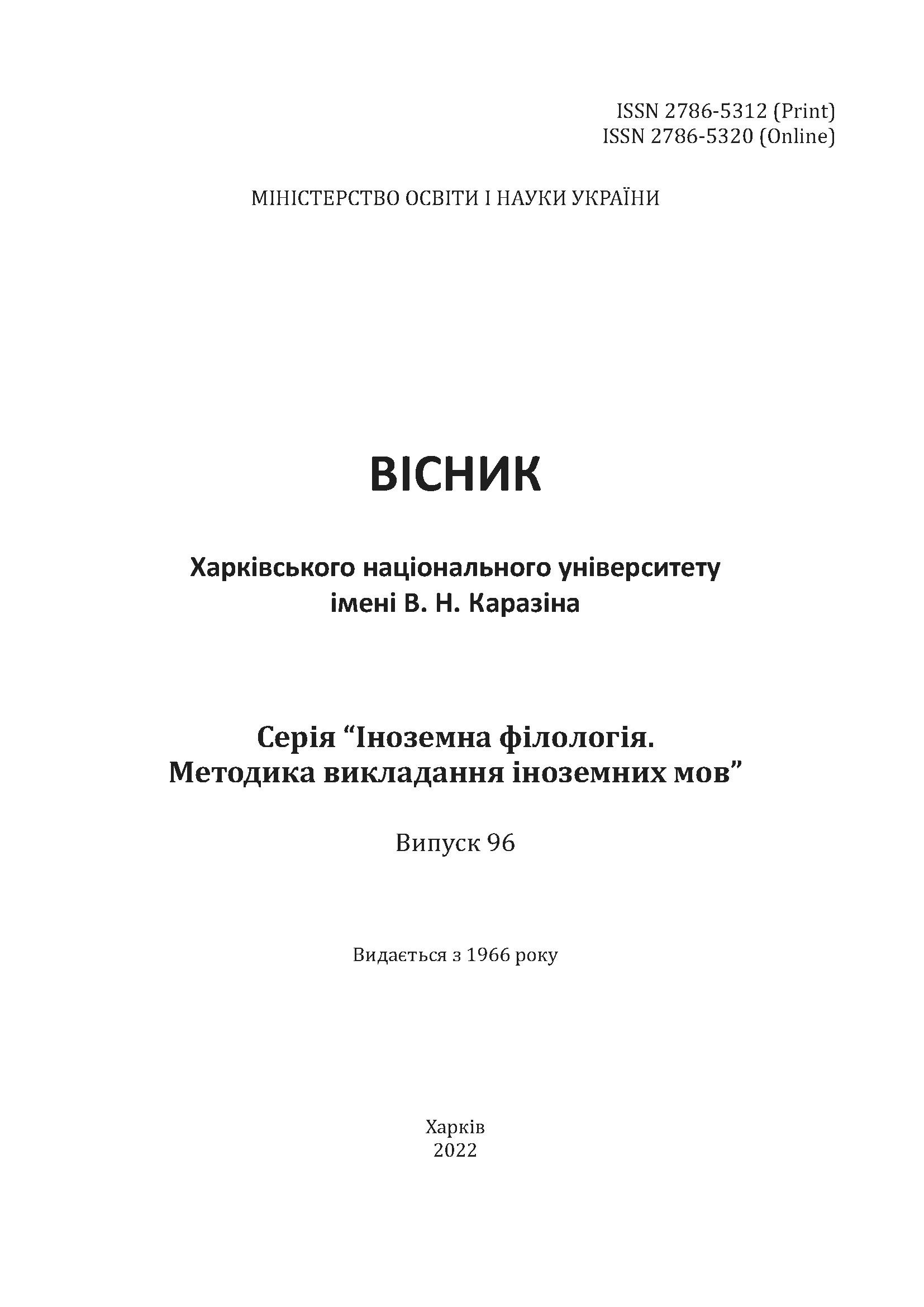Інтертекстуальність на полі медій: еколінгвістичний ракурс (на матеріалі англіськомовної літератури)
Анотація
У статті розглянуто вплив актуалізації прецедентних текстів англійськомовної літератури на екологічність комунікації в художньо репрезентованому політичному та педагогічному контексті спілкуванні на матеріалі сучасних кінострічок. Інтертекстуальна актуалізація таких прецедентних текстів у формі цитат розглянута як складова комунікативної діяльності членів відповідних лінгвокультур, що відбувається у форматі діалогу, в якому один з комунікантів цитує фрагмент прецедентного тексту, важливого для відповідної лінгвокультури, а інший завершує цитування або забезпечує його атрибуцію, реалізуючи парольну функцію цитати-інтертексту. Таку інтертекстуальну актуалізацію базових та маргінальних прецедентних текстів національної літератури досліджено як спосіб конструювання спільної лінгвокультурної ідентичності співрозмовників, що є важливою, хоча й не вирішальною, передумовою екологічності комунікації, унісонності/конфронтаційності встановленого контакту. Реалізація парольної функції інтертекстом художніх текстів в процесі розгортання діалогу ґрунтується на успішності/неуспішності інтеграції таких цитат до реплік комунікантів, яка має когнітивне підґрунтя та спирається на спільний для співрозмовників фонд прецедентних феноменів. Обраний ракурс дослідження підвищує експланаторний потенціал класичної текстоцентричної теорії інтертекстуальності завдяки аналізу когнітивних аспектів та комунікативних наслідків процесів цитації художніх текстів.
Завантаження
Посилання
Batsevych F.S. (2009). Slovnyk terminiv mizhkulturnoii komunikatsii [Glossary of Terms of Intercultural Communication] Retrieved from: http://terminy-mizhkult-komunikacii.wikidot.com/i (in Ukrainian) (Accessed 15 November 2022).
Matuzkova O.P. (2020). Lingvokultura yak synergiia movy, kultury ta svidomosti [Linguistic Culture as Synergy of Language, Culture and Conscience]. Sociolingvistyka. Lingvokulturalogiia. Kognytyvna Lingvistyka. – Sociolinguistics. Linguistic Culture Studies. Cognitive Linguistics, 27, 160−172 (in Ukrainian).
Matiykhina Yu.V. (2016). Markery khezitatsii v suchasniy angliyskiy movi [Hesitation Markers in Modern English]. 7 Mizhnarodna Konferentsiya Suchasna Filologiya: Doslidnytskiy Potentsial Kharkiv [Proc. 7th Int. Conf. Contemporary Philology: Research Potential, 2016 Kharkiv], 16−17 (in Ukrainian).
Matiykhina, Yu.V. (2014). Small talk yak riznovyd angliyskoyi fatychnoyi metakomunikatsii: aspekt diakhronii [Small Talk as a Variety of English Phatic Metacommunication: Diachronic Aspect]. Visnyk Kharkiv. nats. un-tu imeni V.N. Karazina. – V.N. Karazin Kharkiv. National Univ. Messenger, 1106, 65−70 (in Ukrainian).
Pasynok, V.G., Morozova, О.І., Samokhina, V.О. (2017) Ekolingvistychnyi pidkhid do analizu inozemnykh mov ta pedagogichnogo protsesu yikh navchannia v ukrainskykh vyshakh [ Ecolinguistic Approach to the Analysis of Foreign Languages and the Pedagogic Process of Their Training in Ukrainian Universities]. Proc. of 1st All-Ukrainian Conference: “High-Quality Linguistic Education in Modern Globalized World”, 23−24 Nov. (pp. 128−132). Sumy: SumDU. Retrieved from: http://essuir.sumdu.edu.ua/ handle/123456789/67176 (in Ukrainian) (Accessed 15 November 2022).
Soloshchuk, L.V. (2014). Semiotyka komunikatyvnoyi vzayemodii v anglomovnomu dialogichnomy dyskursi [Semiotics of Communicative Interaction in English Dialogic Discourse]. Visnyk Kharkiv. nats. un-tu imeni V.N. Karazina. V.N. Karazin Kharkiv National Univ. Messenger, 1102, 11−18 (in Ukrainian).
Shevchenko. І.S. (2009). Interdiskursyvnist’ politychnogo dyskursu [Interdiscoursivity of Political Discourse]. Visnyk Kharkiv. nats. un-tu im. V.N. Karazina. V.N. Karazin Kharkiv. National Univ. Messenger. 848. 53−57 (in Ukrainian).
Shpak, О.V. (2019). Ekologichnist’ komunikatyvnogo kontaktu v brytanskomy politychnomy dyskursi [Ecology of Communicative Contact in British Political Discourse]. Zakarpatski filologichni studii – Transcarpathian Philological Studies, 8, Vol. 2, 40-45 (in Ukrainian).
Lavrynenko I., Shevchenko I. Turn-Taking in Cinematic Discourse: Linguistic Characteristics and Practical Implications for ESP Teaching. Advanced Education. 2019. Issue 12. 55−63. Retrieved from: https://doi.org/10.20535/2410-8286.155922. (Accessed 15 November 2022).




